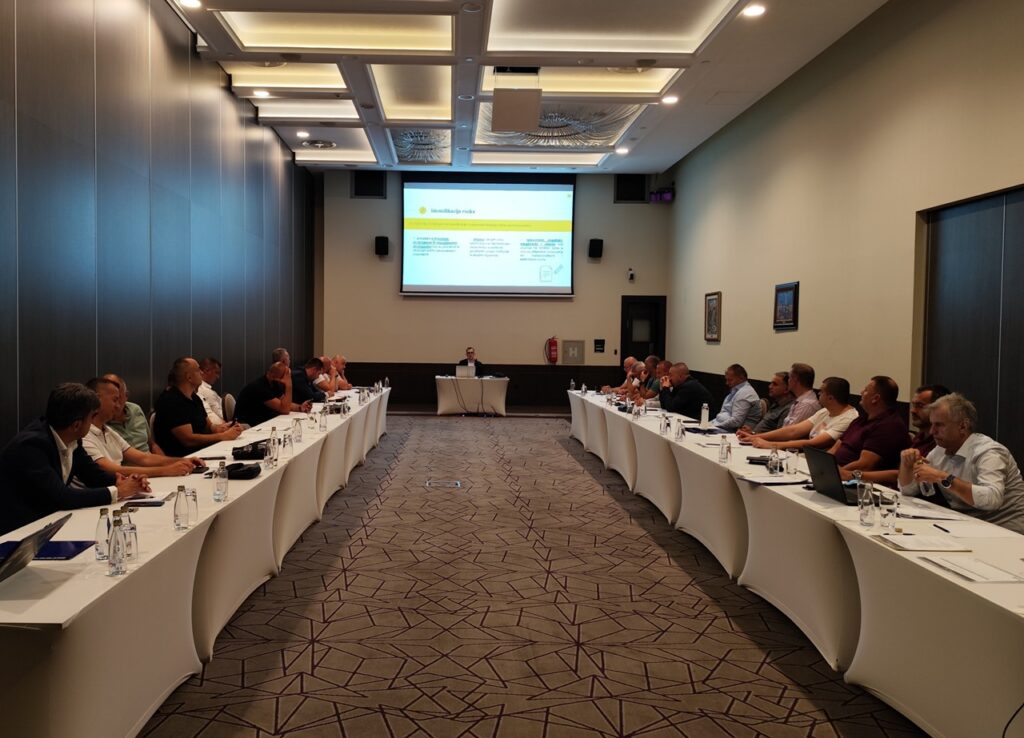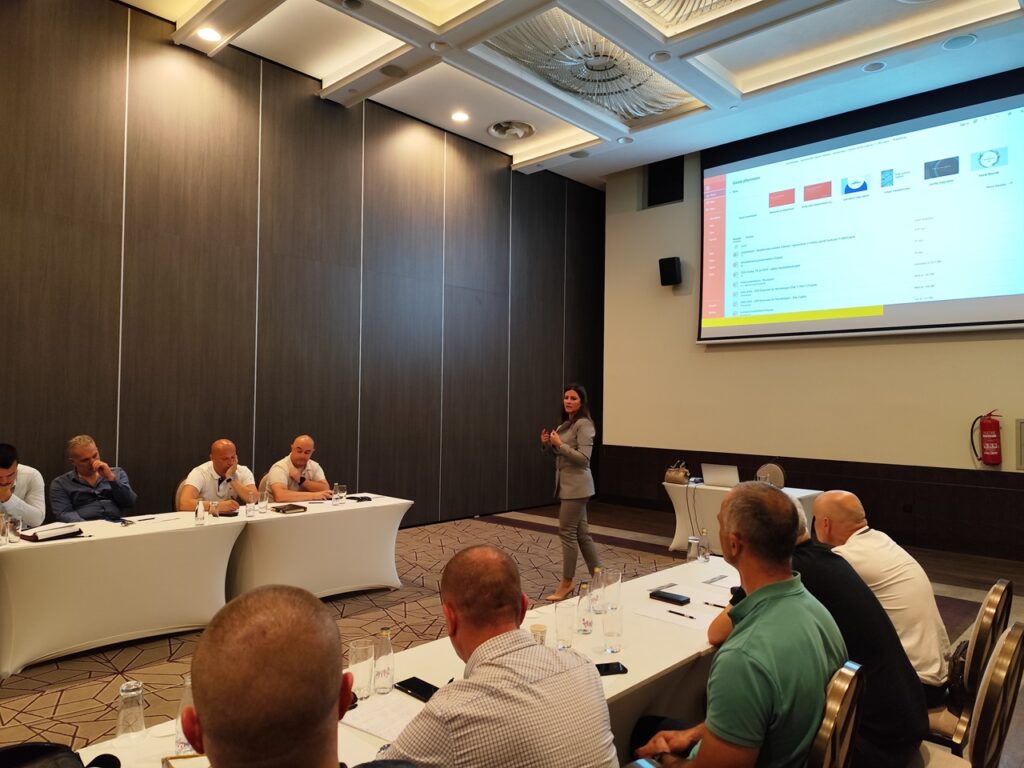Preventive action is essential to combat or minimize corruption, and one effective approach is ensuring that security sector members are familiar with anti-corruption mechanisms. This is the why trainings like today’s one beneficial and important, as concluded by the participants of the training organized by the Centre for Civic Education (CCE) for 25 representatives from the security sector from the Ministry of Internal Affairs, the Police Directorate, and the Ministry of Defense.
During the training, participants received detailed information about anti-corruption policies, including integrity plans, whistleblower protection, conflict of interest, and risk assessment and management. The training also focused on the reporting of income and assets of public officials, the importance of transparency in public functions, and the legislative framework and content of asset declarations. The aim was for the participants to apply the acquired knowledge in their work, thereby strengthening this critical component in institutional functioning, improving good governance, and effectively combating corruption in Montenegro.
“I believe this is an inexhaustible topic – even if we had daily training sessions, they wouldn’t be excessive. The topics are interesting and new. We must adapt our infrastructure, both human and other capacities, and be ready to accept the rules of modern Europe,” said Mersad Mujević, a Chief in the Ministry of Internal Affairs and one of the training participants. Mujević emphasized the significance of the training, highlighting its applicability. “The training was very useful, especially when it comes to the topics presented today. For example, the topic on whistleblowers, their functioning, authority, integrity, and professionalism, really opens up a wide field,” Mujević noted.
“Regarding anti-corruption education, understanding the concept of corruption and the mechanisms for its prevention, as well as the competencies of the Agency for Prevention of Corruption (APC), are very important topics. All officials should undergo such training when starting their work in state or local administration to raise awareness about the importance of integrity for these jobs,” said Jasmina Maraš, Head of the Department for Verification of Data from Public Officials’ Income and Asset Reports at APC and one of the lecturers.
Dejan Đikanović, Senior police advisor I class from the Anti-Corruption Department of the Ministry of Internal Affairs, found the training extremely useful, assessing that there are not enough training sessions on this topic, and they should be conducted regularly. “The trainers were very dedicated and selfless in sharing their knowledge and experience in taking measures to prevent corruption and strengthen integrity, identifying risks of corruption and other unethical behavior, case studies from practice, and their experience helped me understand the problems I will face in taking measures and actions within my jurisdiction. Particularly useful were the mechanisms and tools used in verifying the truthfulness and accuracy of public officials’ asset declarations and the introduction to databases from which we can draw information and data to establish the complete and correct factual situation in cases where there is suspicion of corruption,” he explained.
Dušica Rečević, an independent advisor in the Department for Prevention of Conflict of Interest of Public Officials at the Agency for Prevention of Corruption (APC), who was also one of the lecturers, emphasized that such training sessions are rare but represent a valuable opportunity for improving and strengthening the capacities of the state administration. “The participants showed exceptional interest, which is very encouraging. This also demonstrates their desire to enhance professional skills and acquire new knowledge, which is why I believe that more such training sessions should be organized.”
Today’s training is the fourth in a series of five planned training sessions for public officials from five key areas (education, health, local administration, security, and justice).
The goal of these training sessions is to increase the level of awareness, improve the planning and implementation processes of anti-corruption policies by public officials, while respecting ethical standards.
The training was organized within the framework of the PACT Against Corruption project (Partnership Against Corruptive Tendencies), supported by the Embassy of the United States in Montenegro, Bureau of International Narcotics and Law Enforcement Affairs (INL).
Ivana Matanović, project assistant


